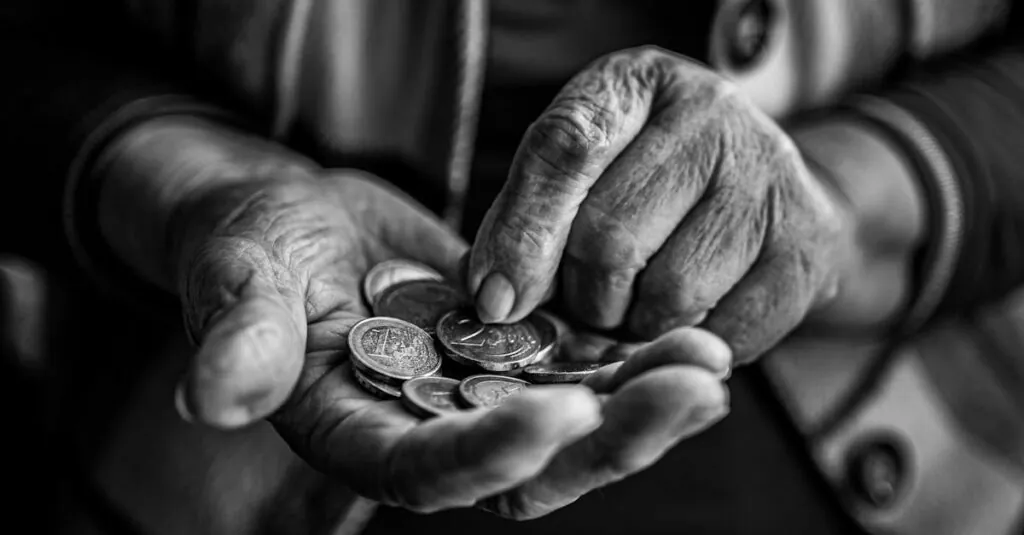Table of Contents
ToggleImagine waking up to the sound of birds chirping instead of car horns blaring. Living without a car isn’t just about saving those precious dollars; it’s a ticket to a whole new lifestyle. From embracing the great outdoors to discovering hidden gems in your neighborhood, going car-free opens up a world of possibilities that you might never have considered.
Picture this: no more traffic jams, no more parking nightmares, and definitely no more awkward conversations with your backseat driver. Instead, you get to stroll, bike, or hop on public transport, turning mundane errands into mini-adventures. Plus, think of the fitness benefits! Who knew that skipping the car could also mean skipping the gym? In this article, let’s dive into the delightful perks of living life on foot (or two wheels) and explore why ditching the car could be the best decision ever.
Environmental Impact
Living without a car significantly enhances environmental health, contributing positively to air quality and overall sustainability.
Reduced Carbon Footprint
Less reliance on personal vehicles lowers greenhouse gas emissions. Transportation accounts for approximately 29% of total greenhouse gas emissions in the United States. Increased walking, biking, and public transport usage reduces individual carbon footprints. Using public transit generates 45% fewer carbon emissions per mile compared to single-occupancy vehicles.
Conservation of Resources
Car-free living fosters resource conservation, particularly fossil fuels. Personal vehicles consume oil, with an average car using about 500 gallons of gas annually. Choosing alternatives helps to decrease demand for petroleum products. Public transportation, cycling, and walking utilize fewer natural resources, promoting a more sustainable lifestyle. By reducing vehicle use, individuals contribute to less energy consumption and decreased resource depletion.
Health Benefits
Living without a car encourages a healthy lifestyle in various ways. Increased physical activity and improved mental well-being are two major advantages.
Increased Physical Activity
Relying on walking or biking instead of driving boosts daily exercise levels. Regular physical activity lowers the risk of chronic diseases such as obesity and diabetes. Studies show adults need at least 150 minutes of moderate aerobic activity weekly for optimal health. Commuting by foot or bike can easily meet these requirements. Moreover, engaging in outdoor activities promotes cardiovascular health and muscle strength. Long-term adherence to this lifestyle fosters a sense of routine, making it simpler to incorporate fitness into everyday habits.
Improved Mental Well-being
Walking or biking regularly enhances mood and reduces stress levels. Engaging in physical activities releases endorphins, which contribute to feelings of happiness. Many people find that connecting with nature during their commute uplifts their spirits. Social interactions increase when using public transport or biking, creating opportunities to meet new people. Additionally, adapting to a car-free lifestyle often leads to increased mindfulness and a greater appreciation for the surrounding environment. Overall, these aspects combine to create a more balanced and fulfilling life.
Social Advantages
Living without a car enhances social interactions and community involvement.
Strengthened Community Ties
Car-free lifestyles often lead to stronger community connections. Residents are more likely to engage with neighbors while walking or biking. Increased visibility fosters friendships and support networks among locals. Shared spaces encourage collaboration, as individuals meet in parks or cafes. Social events thrive when transportation barriers diminish. In tighter-knit communities, collective action becomes easier, whether it’s advocating for local initiatives or participating in neighborhood programs. Consequently, friendships form naturally, creating a sense of belonging.
Greater Accessibility to Local Events
Attending local events becomes effortless without a car. Public transportation, biking, or walking provides easier access to cultural happenings and community gatherings. Many neighborhoods host festivals, markets, and activities that cultivate community spirit. Participating in these events allows individuals to explore local offerings, enhancing their connection to the area. Exploring on foot leads to serendipitous experiences, discovering hidden gems like local shops and art installations. Increased attendance at local events strengthens cultural engagement and fosters a vibrant community identity.
Financial Considerations
Living without a car significantly influences financial aspects of life. Money spent on vehicle ownership transforms into savings and new opportunities.
Lower Insurance and Maintenance Costs
Lower insurance premiums arise from not needing a car. Many people benefit from reduced expenses linked to repairs, oil changes, and tires. Vehicle registration fees can add up, but opting for public transit or biking eliminates these charges completely. Emergencies relating to vehicle breakdowns seldom arise. With a car-free lifestyle, individuals avoid unexpected repair costs, creating a more predictable budget. Ultimately, these savings lead to greater financial flexibility.
Alternative Transportation Savings
Alternative transportation options often provide considerable savings. Public transport systems typically offer affordable monthly passes, minimizing daily travel costs. Biking serves as a low-cost method for commuting, requiring little maintenance compared to cars. Walkers enjoy the benefits of free travel, needing only comfortable shoes and perhaps a water bottle. Carpooling further reduces travel expenses by sharing costs when commuting with friends or coworkers. By focusing on these alternatives, individuals can allocate resources toward other essential areas of their budget.
Lifestyle Changes
Living without a car promotes various lifestyle changes that enhance everyday experiences and foster personal growth.
Embracing Minimalism
Embracing minimalism becomes easier when individuals eliminate the need for a car. Fewer possessions, such as driving gear and extra maintenance tools, lead to a decluttered home environment. The focus shifts toward essential items, reducing stress and simplifying daily life. Prioritizing walking, biking, or public transit encourages mindful consumption, as it cultivates an appreciation for local resources and services. Enjoying life with less fosters creativity and innovation in problem-solving, promoting a sense of fulfillment. Lower reliance on material goods often leads to a deeper connection with surroundings, enriching the overall lifestyle.
Enhanced Travel Experiences
Enhanced travel experiences emerge when individuals embrace a car-free lifestyle. Exploring local neighborhoods on foot or bike creates opportunities to discover hidden gems, from quaint cafes to artistic murals. Unique interactions with community members often arise during these commutes, adding depth to travel experiences. The journey unfolds with fresh perspectives, leading to unexpected adventures that ignite curiosity. Using public transit provides a chance to connect with other travelers, sharing stories and insights along the way. Transforming daily commutes into enjoyable excursions enriches life and fosters a sense of exploration.
Living without a car offers a wealth of benefits that extend beyond financial savings. This lifestyle fosters healthier habits by promoting physical activity and enhancing mental well-being. Individuals often find themselves more connected to their communities as they engage with neighbors and participate in local events.
Additionally, the environmental impact is significant as car-free living contributes to cleaner air and a reduced carbon footprint. Embracing this lifestyle can lead to a more sustainable way of living while encouraging personal growth and exploration. Ultimately, choosing to live without a car can transform everyday life into a more enriching and fulfilling experience.







